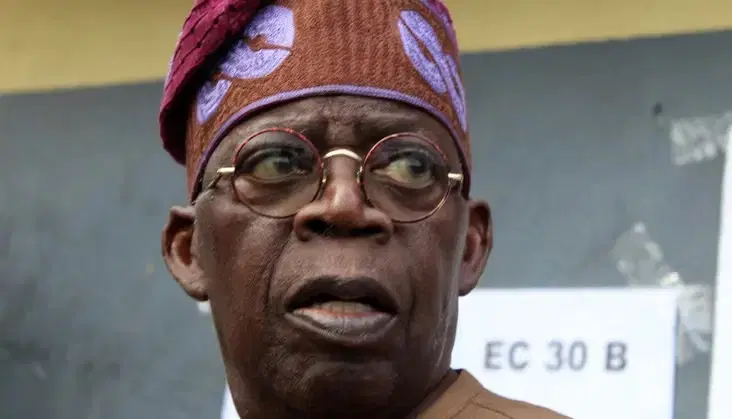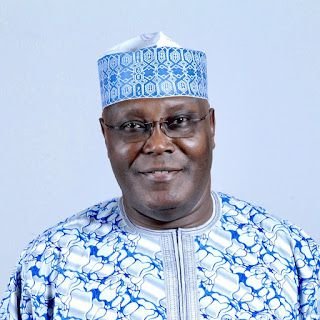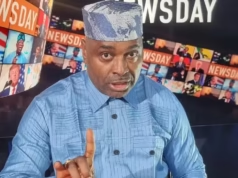Tinubu’s Pardon U-Turn: A Deep Dive into Nigeria’s Political & Judicial Controversy
The reversal of presidential pardons initially granted to certain high-profile convicts by President Bola Tinubu’s administration has ignited a fierce political debate in Nigeria. The controversy centres not just on who was pardoned, but how the process was managed, leading to sharp criticism from the opposition, notably Phrank Shaibu, Senior Special Assistant to former Vice President Atiku Abubakar.

Join our WhatsApp community
1. The Core Controversy: Why the Public Outrage?
The initial approval of clemency for approximately 175 convicts drew immediate and widespread backlash. Critically, the list included individuals convicted of grave offenses such as drug trafficking, kidnapping, fraud, and murder (like Maryam Sanda, whose death sentence was initially reported as pardoned, but later commuted to 12 years).
Keywords: Presidential Pardon Nigeria, Prerogative of Mercy, Public Trust Crisis, Justice System Integrity
The inclusion of these serious offenders raised two fundamental questions for the Nigerian public:
Undermining Justice: Does granting clemency to hardened criminals, particularly those linked to prevailing security challenges like kidnapping and drug offenses, undermine the judicial process and discourage law enforcement agencies?
Victim Sensitivity: The decision appeared to disregard the pain and calls for justice from the victims’ families, leading to accusations of insensitivity from the highest office.
Join our WhatsApp community
2. The Opposition’s Stance: “Governance Without Foresight”
Phrank Shaibu’s criticism is primarily focused on the process and consistency of the Tinubu administration, framing the reversal as an admission of failure.
| Shaibu’s Key Arguments | SEO Focus & Policy Implication |
|---|---|
| Reactive Governance: Accusing the government of only acting after intense public outcry, labeling the reversal as a “reactionary” response rather than a proactive, well-thought-out decision. | Nigeria Reactive Policy, Damage Control Politics |
| Lack of Due Diligence: Demanding transparency regarding who compiled the list and what criteria were used. This suggests the initial process was either opaque or manipulated. | Transparency in Governance, Presidential Prerogative of Mercy Guidelines |
| Moral Erosion: Asserting that the initial pardon attempt “erodes the moral authority of leadership” and that the reversal is “an act of shame, not wisdom.” | Political Moral Authority, Consistency in Leadership |
The opposition argues that a presidential pardon—a constitutional power exercised after consultation with the Council of State—should reflect deeply considered national interests, not be a subject of “trial and error.”
3. The Government’s Defence: Public Opinion and Systemic Reform
In reversing or reviewing the controversial pardons, the Presidency and the Office of the Attorney-General (AGF) presented several justifications, attempting to regain public trust:

Public Consultation and Review: The administration stated the review was necessary due to the seriousness and security implications of some offenses, acknowledging the need to be sensitive to the “feelings of the victims of the crimes and society in general.”
Justice as Three-Way Traffic: The government emphasized that the review was guided by the concept of justice involving the Accused, the Victim, and the State/Society.
Institutional Overhaul: Crucially, President Tinubu directed the relocation of the Secretariat of the Presidential Advisory Committee on Prerogative of Mercy (PACPM) from the Federal Ministry of Special Duties to the Federal Ministry of Justice. This move is aimed at:
Streamlining the process.
Join our WhatsApp community
Ensuring the AGF issues appropriate Guidelines for future exercises, including compulsory consultation with relevant prosecuting agencies.
The government’s action, while confirming the initial list was flawed, seeks to portray the reversal as responsible leadership listening to the people and a commitment to systemic improvement in the judicial clemency process.
4. Systemic Takeaways: The Need for Clear Guidelines
This entire episode highlights a recurring weakness in Nigeria’s constitutional framework regarding the Prerogative of Mercy (Section 175 of the Constitution).
Vague Criteria: The Constitution grants the President wide, almost plenary, powers but provides few explicit guidelines or standards, making the process vulnerable to political pressure or perceived bias.
PACPM’s Role: While the Presidential Advisory Committee on the Prerogative of Mercy (PACPM), chaired by the AGF, is designed to vet cases based on criteria like old age, ill health, or remorse, the initial inclusion of serious offenders indicates a breakdown in this vetting process.
The Path Forward: The President’s directive to the AGF to issue clearer, stringent guidelines and the physical relocation of the PACPM secretariat are critical steps toward ensuring that future pardons are procedurally sound and align with public expectation and national security objectives.

Ultimately, the debate exposes the tension between the constitutional power of mercy and the public’s demand for accountability and justice, forcing the administration into a politically costly U-turn.




